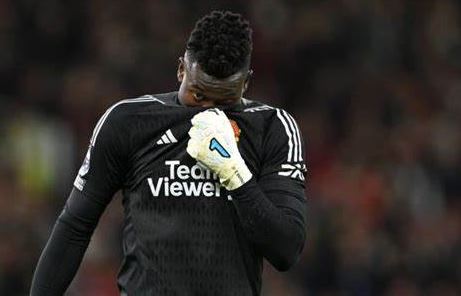
It’s still too early to determine if Andre Onana’s signing for Manchester United will ultimately prove successful or not. His initial performances have been subpar, and the substantial £47.2 million transfer fee he commanded when moving from Milan to Manchester this summer is hard to ignore. This significant investment was, in part, necessary to replace David de Gea, who had been the club’s standout player over the past decade.
De Gea’s departure was a change that had to occur for Erik ten Hag’s rebuilding efforts to progress. While De Gea’s legacy has been revisited positively in recent times, it was a necessary transition. United may need to take a step back before they can leap forward in their goalkeeping department. Onana is a different type of goalkeeper compared to De Gea, with distinct skills.
Only time will reveal whether Onana will be more akin to De Gea or Massimo Taibi. What is essential, though, is that Onana is given the opportunity to acclimate to his new surroundings, just as two of the club’s finest goalkeepers, Peter Schmeichel and De Gea, had once been. These two legendary figures enjoyed success under the management of Sir Alex Ferguson, and anyone who takes the role of United’s goalkeeper will invariably be compared to their greatness.

Retrospectively viewing their respective careers might lead to the mistaken belief that they were flawless from the outset, never encountering the same struggles as Andre Onana. However, this perception is far from accurate.
In fact, both Peter Schmeichel and David De Gea had challenging starts to their tenures at Old Trafford but eventually thrived, thanks to the support of their managers, a bit of luck, and strong performances in significant matches.
When De Gea had a tough debut against West Brom, Sir Alex Ferguson provided reassurance: “He is young. He will learn. He will come through.” Similarly, when Peter Schmeichel initially joined the club, he faced a tough period. He began well with four clean sheets in his first four matches but experienced a concerning dip in form in his fifth game, allowing an easy goal against Leeds due to a misread cross, and another in a match against Wimbledon. Schmeichel’s performance was heavily scrutinized, but he eventually regained his confidence and became regarded as one of the all-time greats.
While things improved quickly for Schmeichel, De Gea’s journey was more complex. He faced competition from backup goalkeeper Anders Lindegaard and even lost his place in the team. Lindegaard achieved five consecutive clean sheets in his initial five league matches, but an ankle ligament injury prompted De Gea’s return. He was given a second chance, which he seized, solidifying his role as the first-choice goalkeeper six months after his difficult season start.
Although Onana has faced a challenging start to his career at the age of 27, there are resemblances to the situations faced by Schmeichel and De Gea. Adapting to a new league can be difficult, and there’s no denying that he must improve. Nevertheless, it is premature to pass a definitive judgment based on such a brief period at the club. Onana may not have met expectations in his early months, but neither did the player he’s now tasked with replacing.
